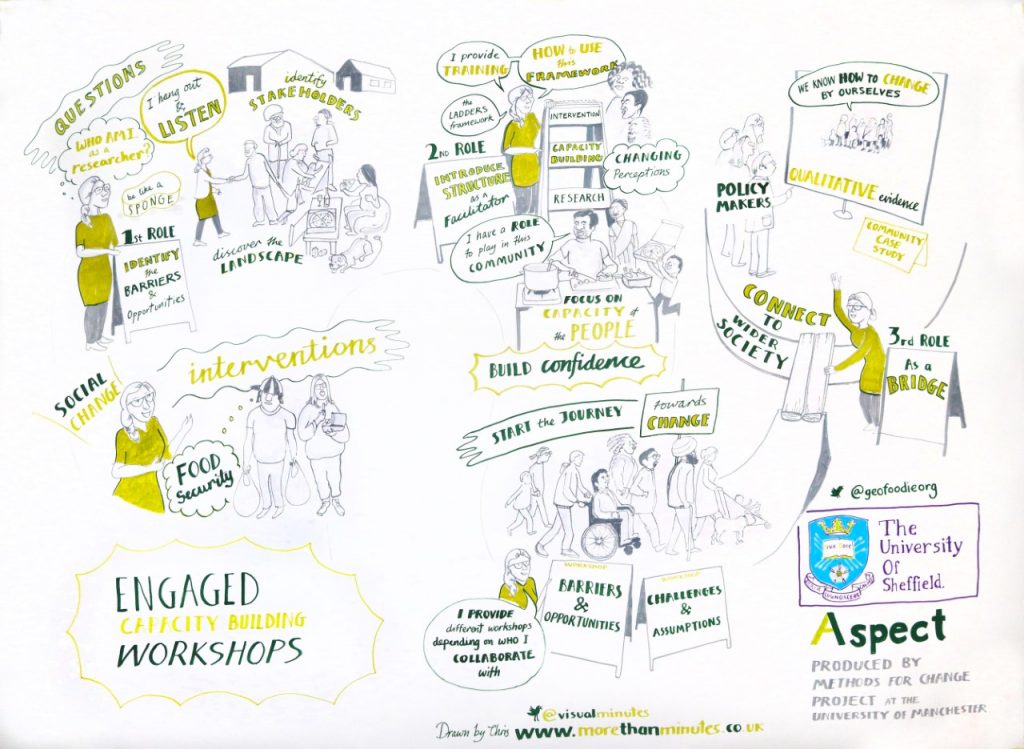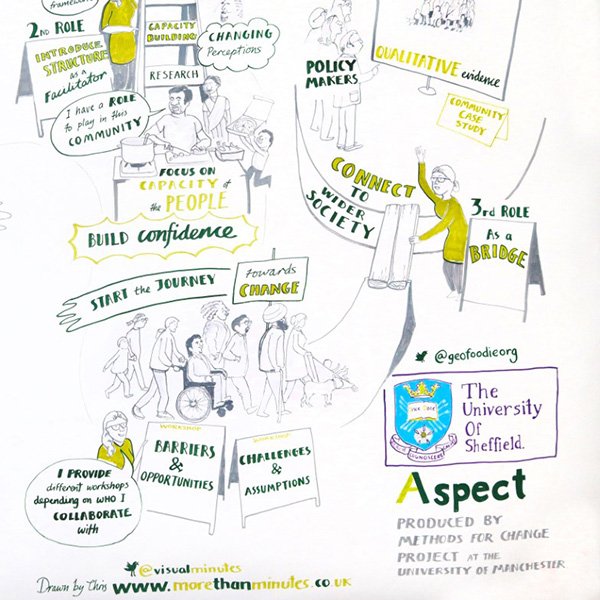Research Method: Engaged Capacity-building Workshops
This is a method that draws on repeated, interlinked workshop activities as a way to bring people together to work on shared issues. Workshops are not one-off events aimed at extracting data from participants, but rather are embedded in long-term engaged forms of knowledge exchange and research, which may draw on multiple methodological tools such as interviews and ethnography, with communities as project partners.
Using this approach can help to build networks of groups and individuals. This could include those who play different roles in relation to a particular service, resource, community or product, within food systems, social care, health or planning, for example.
Engaged Capacity-building Workshops can be applied to understand the materials, values, norms and relationships that shape the issue or system in question, and how power relationships and inequalities are reproduced, to establish avenues for changing and redesigning these relationships. Using this approach can help to build networks of groups and individuals, for example those who play different roles in relation to a particular service, resource, community or product, for example within the food system, social care and health or planning. It involves the researcher working closely with participants, often in experimental ways, to explore problems and questions and to identify solutions. By strengthening relationships between the different stakeholders, this approach can increase resilience and build the capacity of organisations and individuals, leading to improved practices, ways of working and outcomes for those involved

You can find all the research outputs from the Methods for Change series here






